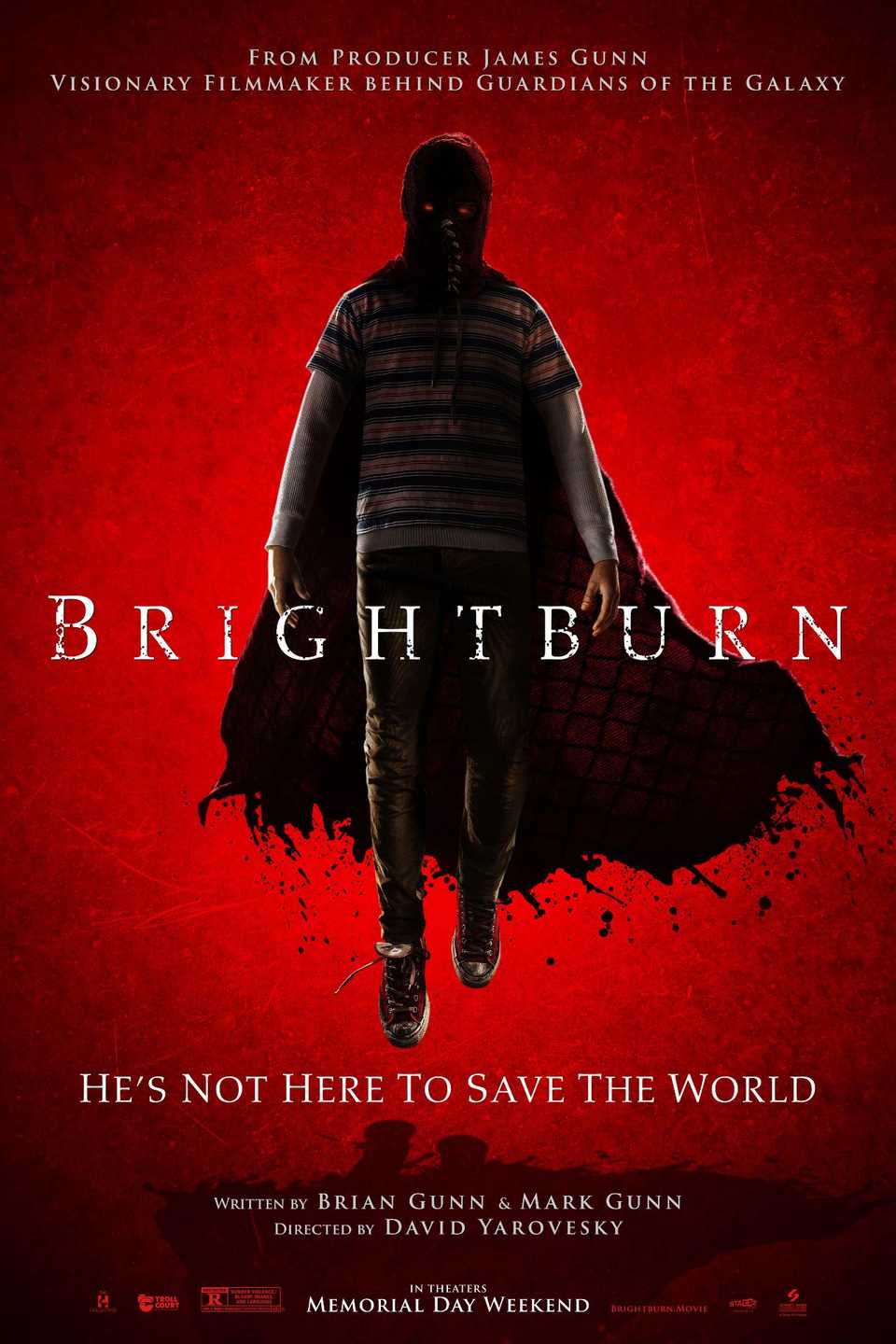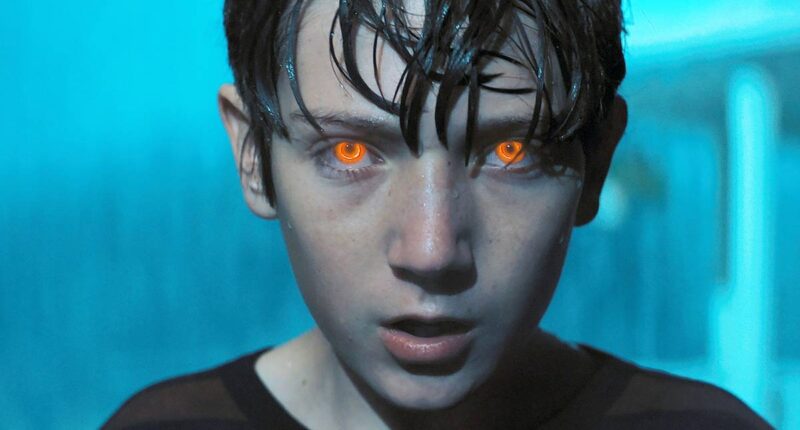In recent years, several popular TV series, such as The Boys and Gen V, have shown us in detail that not all “enhanced individuals” are equally as good-natured as Superman. We’ve seen quite a few of them struggling with using their abilities exclusively for good. Even before these series, there were multiple examples of cinematic superheroes going off the rails for some time and acting irrationally or even criminally. What’s rarer, though, is the concept of a superhero turning into an outright horror villain, and it was perfectly showcased in the 2019 film Brightburn, directed by David Yarovesky and produced by James Gunn. In a revisionist fashion typical for the latter (who started his own directorial career with a wild homage to sci-fi B-movies of the past, Slither), Brightburn re-imagines the classic superhero origin story as a horror. The familiar tropes of both these traditions get satirized and deconstructed here, as Brightburn effortlessly shifts genre gears from one classic Richard Donner film to another — from Superman to The Omen.
A Teenage Boy With Superpowers Becomes a Terrifying Villain in ‘Brightburn’
Tori (Elizabeth Banks) and Kyle Breyer (David Denman), a married couple living on a farm in Kansas, are just about to embark on another attempt to get pregnant when something crashes outside their home. Twelve years later, they are raising their son, Brandon (Jackson A. Dunn), who doesn’t know anything about having been found aboard a crashed spaceship, yet still struggles to connect with people around him. As Brandon’s behavior changes, the Breyers first blame it on puberty, but as the boy starts having nightmares, drawing him into the barn where the spaceship remnants remain, and talking in a non-earthly tongue, it becomes gradually harder to avoid the truth. While Kyle grudgingly acknowledges that Brandon may be violent and even lethal, Tori refuses to believe that what she perceived as a blessing turned into a curse, even when the first blood is spilled.
Given the small-town setting and the way Brandon appears in the human world, his story seems to be largely tailored after the tale of the Man of Steel — unsurprising, since it was produced by the future director of the latest version of Superman, and written by his brother Brian Gunn and cousin Mark Gunn. Once Brandon finds out the truth about his nature, he gets increasingly preoccupied with the questions that plagued many heroes with super abilities before him. In Zack Snyder‘s Man of Steel, the titular hero (Henry Cavill) went through a series of doubts and tribulations (including growing a beard and working on a crab boat). In Smallville, a younger Clark Kent (Tom Welling) experienced temporary insanity thanks to Red Kryptonite, and many other superheroes, including Spider-Man and a bunch of the Watchmen were prone to facing similar moral dilemmas. But while most of them usually work through their crises and still stand up for humanity, even though it often rejects them, Brightburn‘s Brandon comes to a different, much bloodier conclusion.
‘Brightburn’ Mixes Superhero Sci-Fi with Slasher Tropes with Results That are Both Funny and Gruesome
At this point, Brightburn showcases the familiar horror tropes and twists them. Brandon’s outsider status, the bullying he endures, and an unfortunate crush on a girl who had the misfortune of being nice to him once are the staples of an origin story of a very different kind — a serial killer in the making. Without the context of the extraterrestrial origin (the exact details of which are never fully revealed in the movie), the boy’s changing behavior comes off as painfully realistic: sudden fits of anger, unwanted attention to girls, and a possessive attitude towards a gifted weapon. The horrors of puberty, raging hormones, and the desperate quest for self-identity have all been depicted vividly in horror movies, but Brightburn is the first to pack all of these motives into a metaphor, expressed through superhuman (or not human at all) abilities.
Brandon’s “otherness” is felt deeply by both himself and the surrounding people, even those closest to him. As they suddenly see the hints of his darker side and recoil, it just causes him to reject humanity even more. Before flying high in the sky and scorching his enemies with his laser eyes, though, Brandon, who is played to perfection by a fresh-faced, wide-eyed Dunn (ironically, he briefly impersonated a 12-year-old Scott Lang in Avengers: Endgame the same year), displays behavior typical of classic slasher villains. The scenes where the boy stalks his unsuspecting victims are among the best in the film, as they exude both impressive gore (that shard in the eye moment has since become iconic) and dark cinematic irony, like the jump cut from a scene of gruesome murder to a shot of porridge being splashed on a plate.
Yarovesky’s film skillfully toys with the expectations we have for both superhero films and horrors, showing that sometimes not a lot separates a messiah from an Antichrist — often it’s precisely the surrounding world that can determine the outcome. Thus, another crucial topic in the superhero canon gets an interesting update in Brightburn. While in many superhero movies, including Gunn’s own Guardians of the Galaxy franchise, the found family is depicted as a positive power, a source of hope in an otherwise cruel world, Brightburn demonstrates that the opposite is also entirely possible. While Tori and Kyle are good, if flawed, people and loving parents, they still put the burden of being “a miracle” on his shoulders, without ever truly understanding him. Following in the steps of Hereditary, which came out a year before, Brightburn shows a family as a potential source of existential horror, where even unconditional love can transform into something ugly: a chilling terror or uncontrolled rage that threatens to take the world by literal storm.

- Release Date
-
May 24, 2019
- Runtime
-
90 Minutes
- Writers
-
Mark Gunn, Brian Gunn











